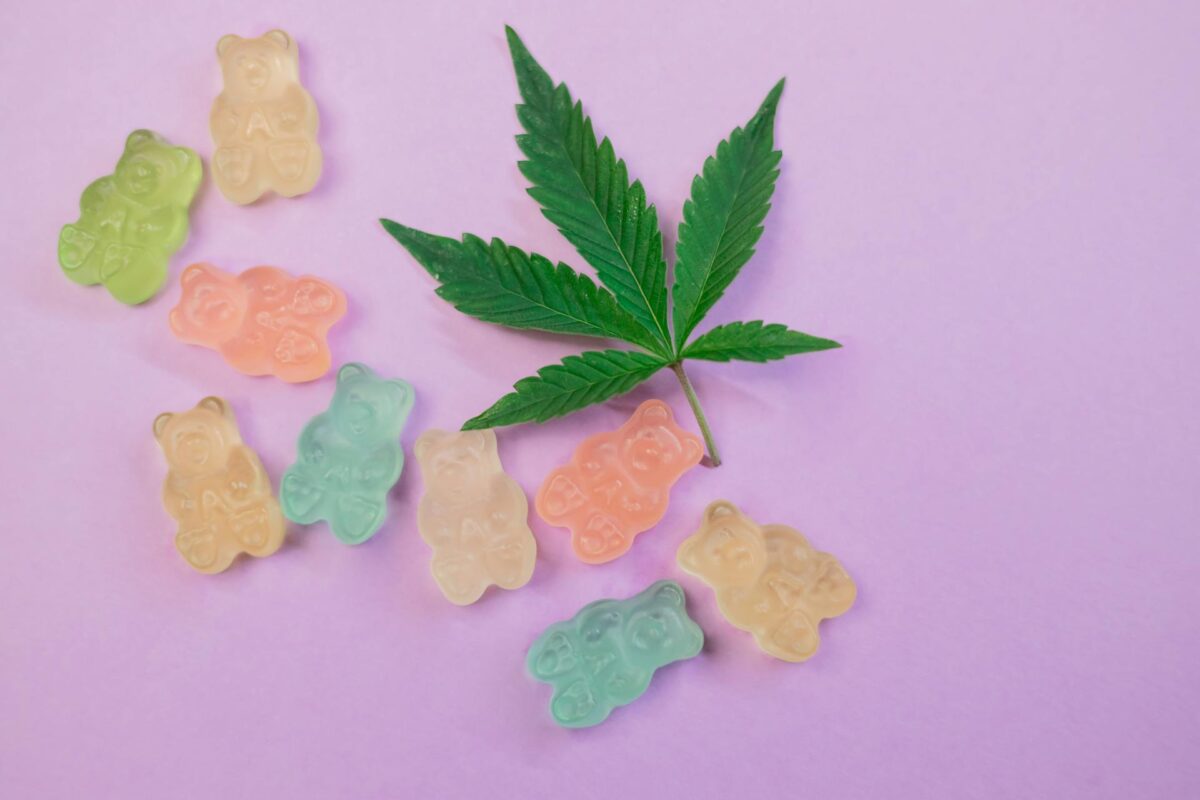Edibles Online as a Path to Better Sleep and Pain Relief? Learn What Experts Are Saying
Edibles online are steadily rising in popularity among cannabis users, which positions as the second most favored cannabis product. This delectable form of cannabis possesses a distinct advantage over smoking, particularly for patients with chronic pain and sleep issues.
Though pain and sleep problems are distinct conditions, they often intersect. Experts find edibles a promising solution due to their sustained effects, which offer prolonged relief from pain and extended sleep duration.
Key Takeaways:
- Cannabis edibles provide long-lasting pain relief and sleep compared to smoking.
- Many users, according to experts, claim that they substitute their traditional medication with cannabis.
- CBD and THC edibles require different dosage consumption, but the best option is always to start low.
Cannabis Edibles Benefits Over Smoking/Vaping
Edibles encompass a range of food and drinks infused with cannabinoids, primarily THC—the principal psychoactive component of cannabis known for inducing a head high. These THC products may also incorporate CBD, a non-intoxicating compound celebrated for its therapeutic properties, alongside other specialized cannabinoids such as CBN, CBG, and THCV.
THC edibles offer an excellent option for both medical patients and recreational users seeking an alternative to smoking or vaping cannabis. They provide a potent and sustained experience, particularly appealing to those desiring a prolonged effect from a THC product.
| Criteria | Edibles | Flower (Smoking/ Vaping) |
| Potency | Stronger | Less High |
| Health Risks | No | Yes |
| Taste | Better | Subtle |
| Discreetness | Yes | No |
| Diverse Options | Yes | Yes |
Edibles provide a longer-lasting effect compared to other methods of cannabis consumption. This extended duration of action is particularly beneficial for managing chronic conditions like pain, inflammation, and nausea.
The prolonged and potent effects of edibles make them a preferred choice among consumers with insomnia. Many find that edibles facilitate longer periods of uninterrupted sleep, which addresses a common challenge for those with sleep disorders.
Findings on the Impact of Cannabis on Sleep and Pain
Patients and healthcare providers are looking for alternatives to widely prescribed analgesics, such as opioid analgesics, sleep aids, and Z-drugs. This interest stems from growing concerns regarding adverse events associated with these medications, such as injuries, misuse, substance use disorder, and overdose.
A comprehensive survey conducted in 2019 showed that 1,000 adult respondents exclusively utilize cannabis for recreational purposes. The majority fell under the age of 50 years (90%). Among these respondents, a significant 65% reported turning to cannabis for pain relief. A majority of these pain-relief seekers (72%) claimed to consume cannabis daily, with an overwhelming 80% attesting to its efficacy in alleviating their pain.
Among respondents who had previously relied on over-the-counter pain medications, a substantial 82% disclosed either reducing or altogether ceasing their usage of such medications. Of those who had been prescribed opioid analgesics, an impressive 88% reported a reduction or cessation in their consumption.
A significant portion of respondents (74%) cited the use of cannabis to facilitate better sleep. Parallel to the pain relief group, a majority (68%) reported consuming cannabis daily, with an impressive 83% affirming its efficacy in improving sleep quality.
Among respondents who had previously utilized over-the-counter sleep aids, 87% indicated a decrease or cessation in their usage. Of those reliant on prescription sleep aids, 83% reported a reduction or cessation in their intake.
Recent surveys conducted in New England indicate that among medical cannabis patients, 76.7% of those using opioids and 65.2% of those using sleep aids reported a reduction in usage. For chronic non-cancer pain, respondents reported a 64% decrease in opioid use after initiating medical cannabis treatment.
How to Choose the Right Edibles
Cannabinoid Content
When considering cannabis edibles, two main types primarily dominate the market: CBD edibles and THC edibles.
CBD Edibles
CBD edibles contain cannabidiol, a non-intoxicating compound found in cannabis plant. These edibles offer the potential health benefits of CBD without the psychoactive effects commonly associated with THC. CBD has calming properties, which makes it a preferred option for stress, anxiety, relaxation, and inflammation relief.
THC Edibles
Weed edibles contain tetrahydrocannabinol, the psychoactive compound in cannabis responsible for producing a euphoric “high.” These edibles can provide a more intense and intoxicating experience compared to CBD edibles. THC edible aims to unwind, stimulate creativity, or indulge in a heightened sense of euphoria.
1:1 THC: CBD Edibles
A 1:1 CBD to THC ratio in edibles provides highly effective medicinal properties for various conditions including insomnia, cancer, fibromyalgia, autism, and more. This ratio offers a relaxing effect with minimal psychoactive effects. Most consumers experience mild euphoria, calmness, and tranquility.
Dosage
THC
| THC Content Per Dose | What to Expect | For Whom |
| 1 – 2.5 mg | Mild relief of symptoms
Improved focus |
First-time users
Microdosers |
| 2.5 – 15 mg | Strong symptom relief
Euphoria |
Restless sleepers
Patients with persistent problems |
| 15 – 30 mg | Strong euphoria | Well-seasoned users
Medical patients with tolerance Consumers seeking to sustain sleep |
| 30- 50 mg | Very strong euphoria to unaccustomed users | Consumers with poor GI absorption |
| 50 -100 mg | Impaired coordination and altered perception | Patients who have inflammatory disorders or other chronic conditions. |
CBD
| Weight | Low Dose | Medium Dose | High Dose |
| 100-130 lbs | 10-17 mg | 21-25 mg | 30-37 mg |
| 130-160 lbs | 20-27 mg | 27-33mg | 35-43mg |
| 160-190 lbs | 29-34mg | 34-40mg | 44-50mg |
| 190-220 lbs | 35-39mg | 42-50mg | 52-58mg |
| 220-250 lbs | 40-44mg | 51-59mg | 60-72mg |
| 250-280 lbs | 45-54mg | 60-69mg | 70-85mg |
| 280+ | 52mg+ | 75mg+ | 90mg+ |
*Add 1mg for every additional 10 lbs
How to Use Edibles
Start Small
Begin with a modest 2 mg dose of THC edibles, as this amount might be considered a microdose, a low dose, or just right. For new consumers, exceeding this amount could lead to feeling more intoxicated than intended for a longer duration.
For those interested in CBD-only edibles, start with 10 mg of CBD.
Begin with 2 mg of THC alongside 2 mg or more of CBD. Purchase separate products containing THC or CBD and consume them simultaneously, or enjoy cannabis from a range of products like gummies containing both compounds.
Timing
Timing is crucial when using marijuana edibles for sleep. To avoid morning grogginess, exercise caution and consume THC gummies or chocolates at least an hour before bedtime. This allows the intense high to align with the time you are likely to fall asleep, minimizing immediate effects that may disrupt sleep and promoting a more restful night.
In Combination with Other Treatments
The active compounds found in hemp plants may interact with prescription medications in various ways. This is because the cytochrome P450 system, responsible for metabolizing approximately 60 percent of the world’s pharmaceutical drugs, also processes cannabinoids like CBD and THC.
- Pain medications with cannabis: Note that painkillers may suppress the central nervous system, which results in severe drops in blood pressure, cognitive impairment, lack of coordination, and cognitive fog.
- Sleep medication with cannabis: Enhancing each other’s effects can increase the risk of severe exhaustion, lethargy, lack of coordination, dizziness, and memory loss
Your optimal choice is to avoid consuming your pain medications and sleeping pills while using THC products. If you feel uneasy about this, consider consulting your healthcare professional.
Eat Before
Consuming THC edibles after eating can regulate their effects, similar to alcohol or caffeine. A full stomach slows down the digestive system, leading to a gradual and consistent experience while reducing the chance of sudden unpleasant adverse effects. Consuming a meal beforehand can help mitigate the onset of the “munchies” sensation often associated with edibles later.
Edibles Online for Pain Relief
Cannabis consumed through food and drinks offers remarkable relief for managing symptoms of pain and sleep issues. Its enduring effects enable patients to lead a more normal life and achieve restful sleep, thereby enhancing both physical and mental well-being. With a wide array of edible dosages, flavors, and types available, it is much simpler to find the excellent choice of THC gummies for your needs.
Experience a head high and buy THC edibles online at GetLoud Dispensary.
Frequently Asked Questions
How long can cannabis relieve pain or induce sleep?
Anticipate effects lasting approximately 6 to 8 hours, sometimes extending beyond. These effects do not manifest immediately; it takes 1 to 2 hours post-consumption to begin feeling them.
What is the best edible to manage pain and sleep?
When you buy edibles online, choose any that suits your preference. Weed gummies are strong edibles for several reasons. They offer versatility, precise dosing, accessibility, and simplicity in production. Chocolates and baked goods are popular choices, too.
Is it safe for me to consume potent edibles if I have only ever smoked weed before?
Experts recommend taking a cautious approach by advocating for patience and a slow pace, mainly if you are new to edibles, lack significant experience with cannabis, or possess a heightened sensitivity to THC.


